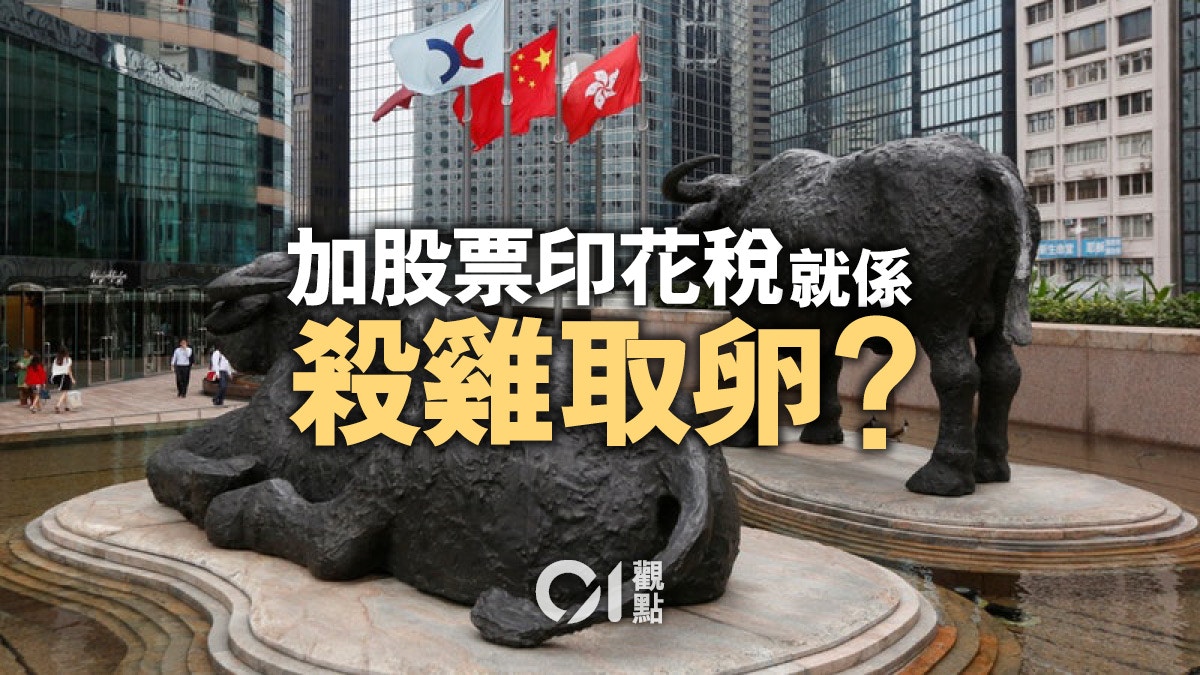01 view
Written by: Commentary Editing Room
2021-02-05 06:45
Last update date: 2021-02-05 06:45
There are voices in the society suggesting that the government increase the stamp duty on stock transactions in order to increase warehouse revenue.
Although this proposal can help make up for the government's heavy public expenditure during the epidemic, the Secretary for Financial Services and the Treasury, Xu Zhengyu, only stated that the authorities will continue to review the tax rate.
Regarding the taxation arrangements in the global financial markets, the Secretary's remarks not only ignore the need for Hong Kong to broaden the tax base, but also place too much emphasis on the assistance of a simple and low tax system to the financial markets.
Legislative Council Member Zhong Guobin asked on Wednesday (February 3) the budget and actual income of stamp duty on stock transactions each year, and whether the government plans to adjust the tax rate and related policies of this tax in the short term.
Xu Zhengyu replied that some people believe that the stamp duty rate for stock transactions should be increased to increase treasury revenue. However, "At the same time, there are also those who hold the opposite view asking the government to lower the stamp duty rate for stock transactions or even abolish the stamp duty on stock transactions to stimulate trading and promote the market. "Development", in the end did not explain any stance.
Stock stamp duty has room for upward adjustment
The new "Budget" was announced this month, but due to the government’s implementation of multiple rounds of poverty relief measures under the epidemic, the budget deficit this year has soared to 300 billion yuan, and fiscal reserves have been reduced by nearly 30% in just one year. It is difficult to increase revenue and reduce expenditure. avoid.
In the Legislative Council on Tuesday, Zhong Guobin asked whether the government plans to adjust the stamp duty rate on stock transactions to ease the serious fiscal deficit.
However, in addition to claiming that the government will review the stamp duty rate for stock transactions, Xu Zhengyu only reiterated that the government needs to balance market development to maintain the competitiveness of Hong Kong's financial market.
The stamp duty on stock transactions accounts for more than 10% of the government's overall tax revenue, and its revenue is undoubtedly a direction that the government should consider.
According to government data, the total amount of stamp duty on stock transactions for the fiscal year 2019-20 is about 330 trillion yuan.
Even though the government has always emphasized that reviewing the stamp duty rate for stock transactions must balance government revenue, promote market development, and maintain the competitiveness of the Hong Kong stock market, this argument is undoubtedly too heavy on the advantages of a simple and low tax system and ignores other considerations of investors.
For example, the stamp duty on stocks in the United Kingdom is as high as 0.5% of the transaction amount, which is much higher than the 0.1% payable by both buyers and sellers in Hong Kong. However, this has not prevented London from becoming a European financial center comparable to Frankfurt, Germany.
Therefore, in addition to tax rates, factors such as sound legal supervision, the reliability of financial services, and the number of investment products also influence the development of the financial market.
Compared with other countries, although the tax collection in Hong Kong's financial market is streamlined, it also means that the government has not been able to develop more potential revenues, let alone use secondary distribution to reverse the inequality in society.
Take the United States, a major global investor city, for example. Although its tax system is complicated, investors have never been discouraged. The authorities not only levy taxes on dividends from 0% to 20% in accordance with shareholder tax bands, so as to make the rich on a progressive basis. At the same time, it divides the income from stock trading into long-term capital and short-term capital. The former is levied at 0%, 15% or 20% capital gains tax according to the tax band, and the latter is directly calculated as ordinary income tax. This has not weakened the booming development of its financial industry.
On the other hand, after Hong Kong proposed a capital market taxation in the 1960s, it has still been discussed for half a century without making any progress.
In 1964, the then Financial Secretary, Guo Bowei, studied dividend withholding tax, but because he failed to resolve the double taxation dispute, he was eventually opposed by the Legislative Council and shelved it in 1966. Later, Xia Dingji proposed to increase stamp duty and increase the staff of the tax bureau in 1973. Strictly investigated the underreporting of stocks and dividend tax, but the result was also nothing.
After the reunification, the Hong Kong Government also consulted the public in 2000 and 2006 on the broadening of the tax base, but in the end they did not implement it because of the same concerns.
It is a pity that Hong Kong has experienced the impacts of the Asian financial turmoil, SARS and the 2008 financial tsunami, but they have failed to force successive governments to face up to the problem of narrow tax bases. However, in the past two years, Hong Kong has experienced anti-amendment campaigns and epidemics. Treasury reserves have been greatly reduced. Officials in charge must adopt a mentality of changing poverty and adaptability, abandon the simple low tax system, and listen carefully to the demands of tax reforms, in order to repair the deficiencies of the current system.
Hong Kong citizens also need a sense of security
[Budget] Reform the tax system to create a fair society
[Budget] Insufficient rescue vouchers can stimulate the economy
【Budget】Reform the tax system and increase expenditure. Public money must be used properly
01 view
The Liberal Party's Stamp Duty Budget Zhong Guobin 01 Viewpoint

